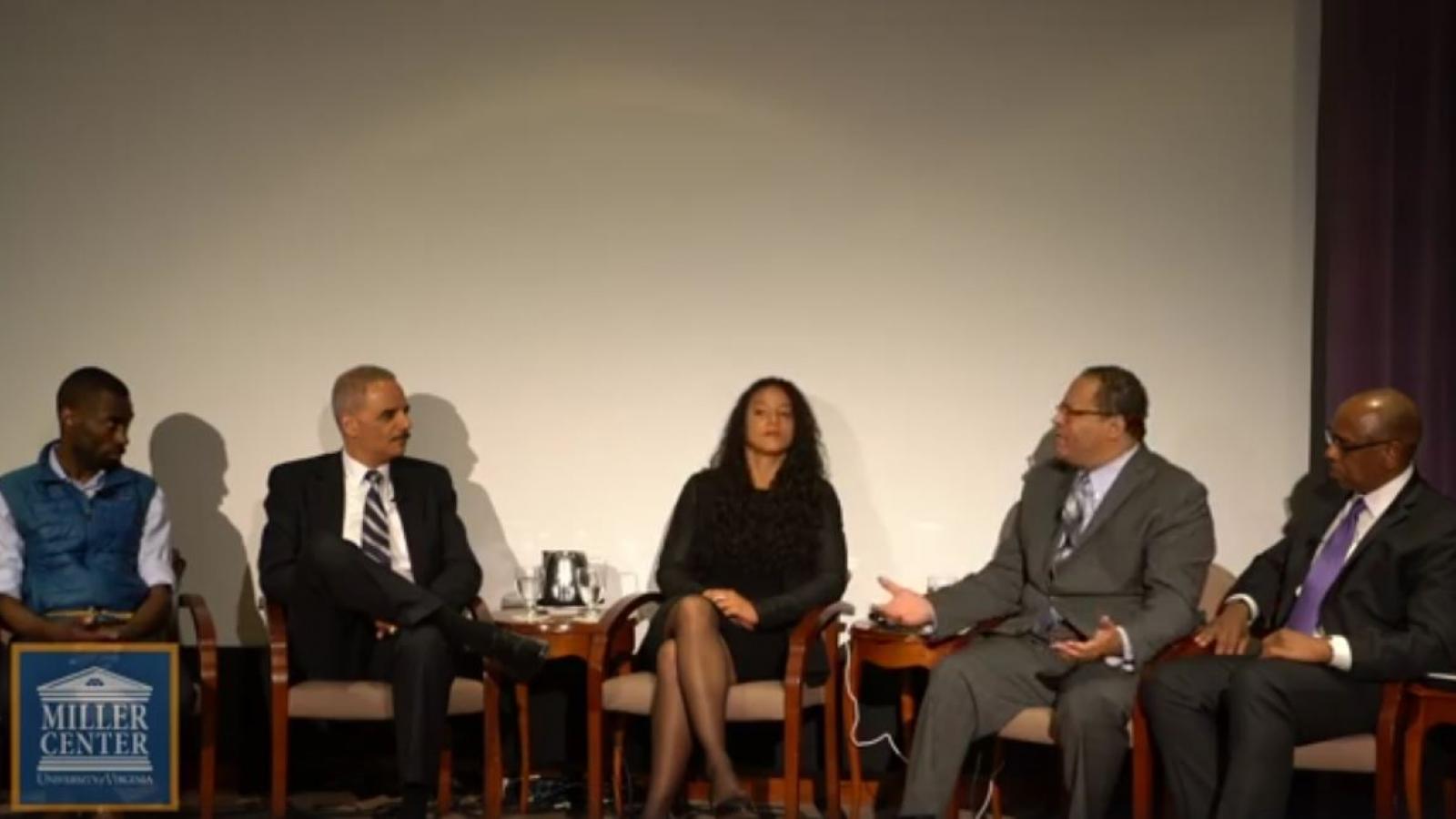American Cauldron: First Year Project panel on race in America
[Reprinted with permission from the Atlanta Journal-Constitution]
Sally Yates gets hero’s welcome at Atlanta race panel discussion
Sally Yates in 2020?
That was the hot half-joking question Wednesday night as the former acting attorney general made one of her first public appearances — at the Carter Presidential Library — since being fired by President Donald Trump for refusing to impose his controversial refugee ban.

Yates, who was sitting in the audience during a race panel that featured author Michael Eric Dyson, activist DeRay McKesson and Yates’ former boss, Eric Holder, was asked by a member of the audience whether she was interested in running for office.
“I am just here in the audience,” Yates said, so quietly that moderator Douglas Blackmon had to repeat it.
Earlier, Yates walked into the auditorium alongside Holder to a standing ovation. Holder held his hand over Yates’ head and urged the crowd to cheer her on.
Later, in what could have been a Freudian slip or a hint at his own future, the former attorney general under Barack Obama yelled, “Holder/Yates: 2020!”
Someone yelled back, “Yates/Holder!”
Yates was a longtime federal prosecutor in Atlanta with several high-profile convictions to her credit when she moved to Washington to become deputy attorney general.
After Wednesday’s panel, when approached by a reporter, Yates declined to offer any comment on her dismissal by Trump or on the Trump campaign’s contacts with Russia.
The title of Wednesday’s panel, put on by the Miller Center at the University of Virginia, was “Race: The American Cauldron.”
Trump loomed large. One of the projects of the Miller Center is to track and study the first year of a new president. Twenty-eight days into the Trump era, some people are clearly worried, and some are clearly thrilled.
Yates, who was named deputy attorney general under Holder during the last years of the Obama administration, had been named acting attorney general while Trump waited for the confirmation of Jeff Sessions. But Trump fired her because she refused to defend his immigration order, which foreshadowed major drama at the White House during the opening days of the Trump presidency.
This week it was revealed that Yates had warned the White House weeks ago that she believed National Security Adviser Michael Flynn was vulnerable to Russian blackmail and that he had misled senior administration officials about the nature of his communications with the Russian ambassador to the United States.
Flynn was forced out this week, the latest episode in the Trump era’s busy first month.
Holder, who has been publicly silent since the election, spoke at length for the first time about what he is witnessing at the White House and across the country. He said he is not happy.
“I am proud of the work we did in the Obama administration,” said Holder, the country’s first black attorney general. “We put in place programs that I think were balanced. And we thought that if we do it right, we could bridge that gap that we know exists between people of color and law enforcement.
“We didn’t close the gap, but I worry that that gap will widen and will go back to the old ways. I worry about where the new administration is going. I am concerned that we might go in a reverse direction.”

McKesson, who rose to fame as one of the leading voices of the Black Lives Matter movement, said Holder and the White House were very open to conversations with activists, even when the administration and the activists weren’t on the same page.
He said he can’t foresee that kind of relationship with Trump and Sessions.
“What is true now is that there is an attorney general and there is a president,” said McKesson, in his traditional blue bomber vest. “We need them to do as little harm as possible.”
Dyson, who was one of Obama’s most vocal academic critics, playfully jostled with Holder throughout the 90-minute conversation. He said he still has his criticisms of Obama but agrees that Trump is a poor replacement.
He said now it will be up to African-Americans to teach America a lesson about Trump.
“What you see with Donald Trump is whiteness out of control. Spoiled, unconscious, refusing to acknowledge privilege and refusing to see that it is white,” Dyson said.
“A lot of this (support for) Trump is because of a smart Negro with power,” he said, a reference to Obama. “We have to become outposts of resistance.”
Harvard University scholar Elizabeth Hinton and DeKalb County Public Safety Director Cedric Alexander were also on the panel.
